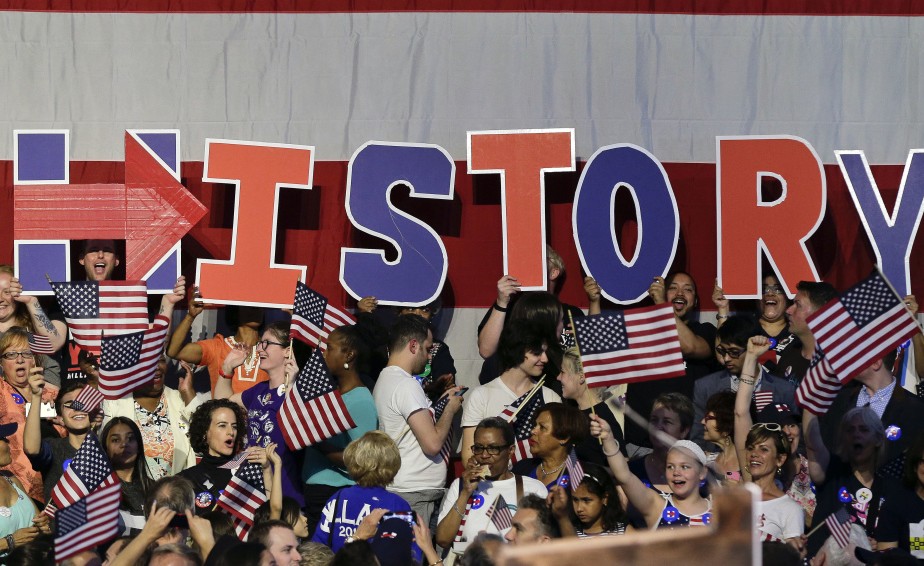With Hillary Clinton’s victories in Tuesday’s primaries, a woman has finally clinched a major party’s presidential nomination for the first time in history. In 2016, is that supposed to be a big deal?
The answer is “yes.” It is a very big deal, and the fact that it’s so long overdue makes it an even more important event in our history.
Our whole system of government is based on equal representation, but women have never even been adequately represented, let alone equally.
Women make up over half the electorate, but they are vastly outnumbered when it comes to holding office.
There are only six female governors in the 50 states. There are only 20 women in the 100-member U.S. Senate. There are 84 women in the 435-member U.S. House of Representatives. There are only three on what’s supposed to be a nine-member Supreme Court.
And there has never been a woman president, not even a major-party nominee. Not until now.
Men have championed women’s rights, but it is not the same thing as having a woman in the top jobs. Male allies don’t inspire young girls to see themselves running for office. They don’t get other men used to the idea of a woman in a position of power. They don’t bring the same life experience to the political process.
Even though nearly 100 percent of Americans tell pollsters that they would consider voting for a woman for president if they thought she were qualified, there is no evidence that gender bias is a thing of the past. In fact, there is plenty to suggest that implicit bias governs decision making, and that it affects women’s opportunity to succeed whether individuals believe they are discriminating or not.
Women earn more bachelor’s and advanced degrees than men, but they fall behind in pay and promotions in the workforce.
The divide is more pronounced the higher up the ladder you go. For instance, there are only 22 women CEOs in Fortune 500 companies.
It’s well known that women earn only 77 cents for every dollar a man makes, but the problem is bigger than that. The wage gap is nonexistent when young men and women enter the workforce, but when they reach the age when people start families, women’s income falls off steeply.
That’s because women are expected to do more than an equal share of work when it comes to raising children, so policies that are hostile to families penalize women disproportionately. Government actions to reduce access to reproductive health care, including birth control and abortion, interfere with a women’s ability to control their lives. The poverty rate for women is significantly higher than it is for men.
So before this campaign gets into full gear, all Americans should take a moment to reflect on what this means, not just for Hillary Clinton or the Democrats, but also for the country.
Next November, millions and millions of women will have the chance to vote for a woman to fill the highest office in the land. Ninety-six years after women first got the right to vote, that is a very big deal.
Send questions/comments to the editors.


